Shah Rukh Khan
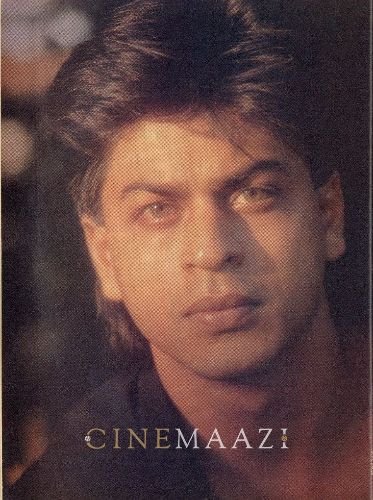
Subscribe to read full article
This section is for paid subscribers only. Our subscription is only $37/- for one full year.
You get unlimited access to all paid section and features on the website with this subscription.
Not ready for a full subscription?
You can access this article for $2 , and have it saved to your account for one year.
- Born: 2 November 1965 (Delhi)
- Primary Cinema: Hindi
- Spouse: Gauri Chhibber
- Children: Aryan Khan, Suhana Khan, Abram Khan
“King. Legend. Friend. But above all, GREAT ACTOR (for those who don’t know him in the West, I strongly suggest, “My name is Khan- and I am not a terrorist”).” In early 2023, world-renowned author Paulo Coelho penned these words as he re-shared one of Shah Rukh Khan’s tweets wherein the charismatic star could be seen greeting a multitude of fans outside his residence, Mannat. Coelho had succinctly summed up the appeal of Khan in those few words. Actor, film producer, television personality, and businessman, Khan is one of the most recognised and greatest stars to have graced the Indian silver screen. In terms of audience size and income, he has also been described as one of the most successful film stars in the world. Known as much for his powerful screen presence as he is for his charisma, wit and kindness, he is not only one of the most sought-after Hindi film actors, and but also a symbol of grace and inclusivity, uniting fans across the country; he has a significant following in Asia and the Indian diaspora worldwide, as well. Initially rejecting the image of the conventional hero and creating his own version of the villain, he would later assume the role of hero and propel a slew of blockbusters. Known for films such as Deewana (1992), Baazigar (1993), Darr (1993), Dilwale Dulhania Le Jayenge (1995), Karan Arjun (1995), Dil To Pagal Hai (1997), Yes Boss (1997), Duplicate (1998), Kuch Kuch Hota Hai (1998), Ashoka the Great (2001). Devdas (2002), Kal Ho Naa Ho (2003), Veer-Zaara (2004), Chak De! India (2007), My Name Is Khan (2010), Jab Tak Hai Jaan (2012), Chennai Express (2013), Happy New Year (2014), Raees (2017), Pathan (2023) and Jawan (2023), ‘King Khan’, as the media often dubs him, has essayed a range of roles from sensitive lover or son, to comedic, as well as hardcore action. He has featured in more than 90 films, some themes of which revolve around Indian national identity and connections with diaspora communities, as well as racial, social and religious differences. Over the years, he has earned several accolades, including approximately 15 Filmfare awards, the Padma Shri by the government of India (2005), as well as the Ordre des Arts et des Lettres (2007) and Legion of Honour (2014) by the government of France. Equally remarkably, he has reinvented himself following a brief setback and hiatus, making a career comeback with the 2023 action films Pathaan and Jawan, both of which rank among the highest-grossing Hindi films. His success has been attributed to the "outrageous amounts of [his] charisma and absolute mastery of [his] craft. Comfortable in almost every genre going, there's pretty much nothing he can't do."
Born on 2 November 1965, in Delhi, his father Mir Taj Mohammed Khan, was an Indian Independence activist from Peshawar who campaigned alongside the Khudai Khidmatgar, a nonviolent resistance movement led by Abdul Ghaffar Khan that sought a united and independent India. His mother, Lateef Fatima, a magistrate, was the daughter of a senior government engineer.
After spending the first five years of his life in Mangalore, where his maternal grandfather, Iftikhar Ahmed, served as the chief engineer of the port in the 1960s, Khan grew up in the Gautham Nagar neighbourhood of New Delhi. Attending St Columba's School in central Delhi, he excelled in his studies as well as sports such as hockey and football, even receiving the school's highest award, the Sword of Honour.
A shoulder injury in his early years put paid to his dream of pursuing a career in sport. Enrolling at Hansraj College (1985–88) to earn his bachelor's degree in Economics, he grew increasingly involved with Delhi's Theatre Action Group (TAG). Studying acting under the mentorship of theatre director Barry John, he also picked up important cues from actors like Raghubir Yadav, who were part of the National School of Drama, where his father ran the institute’s canteen. He had enrolled for a master's degree in mass communication at Jamia Millia Islamia, but dropped out of academic studies to pursue a career in acting.
Beginning his innings in television, he was signed for Lekh Tandon's television series Dil Dariya. Though the shooting began in 1988, due to production delays, the 1989 series Fauji became his television debut instead. He won instant attention in his lead role as Abhimanyu Rai in the series which portrayed a realistic look at the training of army cadets. He would go on to feature in Aziz Mirza's television series Circus (1989–90) and Mani Kaul's miniseries Idiot (1992), as well as minor parts in the serials Umeed (1989) and Wagle Ki Duniya (1988–90), as well as the English-language television film In Which Annie Gives It Those Ones (1989).
Deciding to pursue a career in films—and also reportedly to escape the grief of his mother’s demise—he moved from Delhi to Mumbai. He would debut with Deewana in 1992, also winning the Filmfare best male debut award for his performance opposite Divya Bharti, as the second lead after Rishi Kapoor. The film, a resounding box office hit, set him on course for a path that would only lead to greater glory. The same year, he had three more releases, namely Chamatkar (1992), Dil Aashna Hai (1992), and Raju Ban Gaya Gentleman (1992).
The industry and media, which had already noticed and written about the resemblance of his acting style to that of the legendary Dilip Kumar, was quick to fall under his charm. Commenting on his energy and enthusiasm onscreen, the newspapers described his new brand of acting, with apt detail: "Sliding down stairs on a slab of ice, cartwheeling, somersaulting, lips trembling, eyes trembling, bringing to the screen the kind of physical energy ... visceral, intense, maniacal one moment and cloyingly boyish the next."
Just a year into the business, so to speak, and Khan was already looking for new challenges and fast turned the accepted Hindi film formula on its head by headlining villainous roles. In 1993, he shocked audiences playing a murderer in Baazigar (1993) and an obsessive lover in Darr (1993); both films, incidentally, hit the jackpot at the box office, further astounding cinema analysts, and also winning him critical acclaim. While The Cambridge Companion to Modern Indian Culture dubbed his Baazigar character “the consummate anti-hero,” the Encyclopaedia of Hindi Cinema pointed out that Khan "defied the image of the conventional hero in both these films and created his own version of the revisionist hero.” He would make waves further, reportedly essaying a controversial nude scene with Deepa Sahi in Maya Memsaab (1993). Though he would steer clear of sex scenes thereafter, he did return to villainy, again playing an obsessive lover in Anjaam (1994).
His vulnerable, mischievous performance as a love-struck musician in Kundan Shah's comedy-drama film Kabhi Haan Kabhi Naa (1994), would lead to no less than seven films in 1995. The foremost of them all was Aditya Chopra's directorial debut, the romantic drama Dilwale Dulhania Le Jayenge, in which he played a young non-resident Indian (NRI) Raj who falls in love with Simran (Kajol) during a trip across Europe. The film, the year’s highest grossing production in India and abroad, would establish him as romantic hero numero uno. He was hailed for redefining the lover for the 1990s with great panache, with film critic Raja Sen noting, “He's cool and flippant, but sincere enough to appeal to the [audience]. The performance itself is, like the best in the business, played well enough to come across as effortless, as non-acting.”
The onscreen debacles, that occurred from time to time, were wiped off by critical and commercial successes such as Aziz Mirza's romantic comedy Yes Boss (1997), Pardes (1997), and the musical romance Dil To Pagal Hai (1997). He would win critical acclaim for his performance as an All India Radio correspondent infatuated with a mysterious terrorist in Mani Ratnam’s Dil Se (1998). The same year, he portrayed a college student in Karan Johar's immensely successful love triangle romance Kuch Kuch Hota Hai (1998).
He collaborated frequently with filmmakers known for their romantic themes, such as the veteran Yash Chopra, as well as Aditya Chopra, and Karan Johar, who further moulded his image. Receiving widespread adoration from audiences, especially teenagers, Khan was installed as a veritable icon of romance in India. Waves of constant and massive hits underlined his unquestionable superstar status.
In 1999, he turned producer in collaboration with actress and his frequent co-star Juhi Chawla and the director Aziz Mirza for a production company called Dreamz Unlimited, which went on to produce Phir Bhi Dil Hai Hindustani (2000), and Santosh Sivan's critically appreciated historical epic Asoka; however, commercial success was elusive. A spinal injury suffered while performing an action sequence, followed by surgery for a prolapsed disc, saw him reduce his work load subsequently. He would continue to win appreciation with hits such as Aditya Chopra's Mohabbatein (2000), Karan Johar's family drama Kabhi Khushi Kabhie Gham (2001), Sanjay Leela Bhansali's period romance Devdas (2002) in which he essayed a rebellious alcoholic, and Karan Johar’s comedy-drama Kal Ho Naa Ho (2003). After Dreamz Unlimited bit the dust, Khan went solo, establishing Red Chillies Entertainment, adding his wife Gauri as a producer. He would star in the company's first production, which also marked choreographer Farah Khan's directorial debut - Main Hoon Na (2004), which displayed a departure from the stereotypical portrayal of Pakistan as enemy. It was followed by Yash Chopra's romance film Veer-Zaara, the country’s highest grossing film of 2004, in which he essayed an Indian Air Force pilot in love with a Pakistani woman. The same year, he would also play a NASA scientist who returns to India to rekindle his roots in Ashutosh Gowariker's social drama Swades (2004).
In 2005, he starred in Amol Palekar's critically appreciated fantasy drama, Paheli, followed by Karan Johar’s romantic drama Kabhi Alvida Naa Kehna (2006), in which he played an unhappily married man who has an extramarital affair with a married woman, followed by the actioner Don (2006), a Farhan Akhtar-directed stylish remake of the 1978 Amitabh Bachchan-starrer of the same name.
In 2007, he portrayed a disgraced hockey player who coaches the Indian women's national hockey team to World Cup success in Yash Raj Films' semi-fictional Chak De! India. Playing a liberal Indian Muslim, Khan portrayed the character Kabir Khan without his usual trappings and quirks. The same year, he would also star in Farah Khan's reincarnation melodrama Om Shanti Om, portraying a 1970s junior artiste who is reborn as a 2000s era superstar. He was commended for tackling comedy, high drama and action in his signature style—with spontaneity and intuitive intelligence in the film which became the highest grossing Indian motion picture of 2007, both domestically and abroad.
Aditya Chopra’s romantic drama Rab Ne Bana Di Jodi (2008) provided him a tailor-made opportunity to essay Surinder Sahni, a shy man with low self-esteem, whose love for his young arranged wife (Anushka Sharma) causes him to transform himself into Raj, his boisterous alter-ego.
My Name Is Khan (2010) marked his fourth collaboration with director Karan Johar and his sixth with Kajol. He played Rizwan Khan, a Muslim suffering from mild Asperger syndrome, who sets out on a journey across America to meet the country's president. The film became one of the highest grossing Hindi films of all time outside India.
In 2011, he starred in Anubhav Sinha's superhero film Ra.One, which followed the story of a London-based videogame designer who creates a villainous character who escapes into the real world. Billed as the most expensive Hindi film production, the film received mixed reviews. It was followed by the sequel Don 2 (2011), which brought Khan praise for a performance that saw him staying in command and never losing his foothold, “neither through the dramatic sequences nor through the action cuts.”
In 2012, he would star in Yash Chopra’s last picture, the romantic drama Jab Tak Hai Jaan, followed by Rohit Shetty's action comedy Chennai Express (2013) for Red Chillies Entertainment, and Farah Khan's ensemble action comedy Happy New Year (2014).
Releases such as Dilwale (2015) and Fan (2016) bombed badly, denting Khan’s reputation. To his credit, he was appreciated for his supporting part of a therapist in Gauri Shinde's coming-of-age film Dear Zindagi, as well as his titular anti-hero role of bootlegger turned mobster in Rahul Dholakia's action crime film Raees (2017). Imtiaz Ali's Jab Harry Met Sejal (2017), in which he played a tourist guide who falls in love with a traveller, failed to find box office success, as did Aanand L Rai's romantic drama Zero (2018), in which Khan played a dwarf involved in a love triangle.
Thereafter, he took a four-year hiatus from full-time acting, returning in 2023, Khan with Yash Raj Films' action thriller Pathaan (2023), set in the YRF spy universe. Playing an exiled field agent assigned to stop a terrorist attack in India, his performance was dubbed a "much-needed makeover", as the film marked the unequivocal re-establishing of his stardom. Atlee’s Jawan (2023) saw him continue with his freshly-minted action avatar, playing father and son doppelgängers. The film, incidentally, broke the box office records set by Pathaan, making Khan the first Indian actor to deliver two films that earned over Rs 10 billion.
He is next set to appear in Rajkumar Hirani's Dunki, a social drama about illegal immigration.
Khan has also hosted several televised award shows, including Filmfare, Zee Cine, and Screen awards. He has also hosted seasons of Kaun Banega Crorepati, Kya Aap Paanchvi Pass Se Tez Hain?, and TED Talks India Nayi Soch. He is also a frequent stage performer and has participated in several world tours and concerts.
In 2008, in partnership with Juhi Chawla and her husband Jay Mehta, Khan acquired ownership rights for the franchise representing Kolkata in the Twenty20 cricket tournament Indian Premier League (IPL), naming the team Kolkata Knight Riders (KKR).
Ever present in the public consciousness, with his films, print and television ads and huge billboards, he is one of the highest paid and most visible celebrity endorsers in advertising. Dubbed ‘Brand SRK’ on account of his many brand endorsement and entrepreneurship ventures, he has endorsed brands such as Pepsi, Nokia, Hyundai, Dish TV, D'decor, LUX and TAG Heuer. Estimated to have a fan base exceeding one billion, he constantly features on most powerful global people lists in Newsweek, Los Angeles Times, Empire, and Time magazine.
Frequently appearing on listings of the most popular, stylish and influential people in India, he has also been voted on The Times of India's list of the 50 most desirable men in India, and the sexiest man in Asia by Eastern Eye.
Owner of several properties in India and abroad, including a £20 million apartment in London and a villa on the Palm Jumeirah in Dubai, Khan also tops the lists such as Forbes India’s wealthiest celebrities. His popularity has been documented in many non-fiction films, including the two-part documentary The Inner and Outer World of Shah Rukh Khan (2005), and the Discovery Travel & Living channel's ten-part miniseries Living with a Superstar—Shah Rukh Khan (2010). There have also been books published about him, including King of Bollywood by Anupama Chopra, and Still Reading Khan by Mushtaq Shiekh. In 2007, he became the third Indian actor to have his wax statue installed at London's Madame Tussauds museum.
Khan has also been brand ambassador of various governmental campaigns, including Pulse Polio and the National AIDS Control Organisation. In 2011, he received UNESCO's Pyramide con Marni award for his charitable commitment to provide education for children, becoming the first Indian to win the accolade. Ambassador for Interpol's campaign "Turn Back Crime", he was also honoured by the World Economic Forum with their annual Crystal award for his leadership in championing children's and women's rights in India. In April 2020, he had announced a series of initiatives to help the government of India and the state governments of Maharashtra, West Bengal and Delhi mitigate the Covid-19 pandemic as well as relief measures for thousands of underprivileged people and daily wage labourers affected by the lockdown.
One of the most decorated Indian film actors, besides other awards, he has received 15 Filmfare awards, including eight for best actor in which category he is tied with the great thespian Dilip Kumar. He has also received five honorary doctorates; including from the University of Bedfordshire, the University of Edinburgh, Maulana Azad National Urdu University, the University of Law and La Trobe University.
On the personal front, he married Gauri Chibber, a Punjabi Hindu, in a traditional Hindu wedding ceremony on 25 October 1991, after a six-year courtship. They are parents to Aryan Khan, Suhana Khan and AbRam Khan. Aryan, who studied filmmaking at the USC School of Cinematic Arts in California, aspires to become a writer-director, while Suhana, who served as assistant director for Khan's film Zero (2018), studied drama and acting at NYU's Tisch School of the Arts for higher education.
A strong believer in Islam, Khan equally values his wife's religion. At his home, the Qur'an is placed alongside the statues of Hindu deities, and Hindu festivals are celebrated with as much enthusiasm as Eid. He has inculcated in his children the ideas of secularism and respect for all religions.
Speaking against the growing intolerance in the country, he once said, “It is stupid to be intolerant and this is our biggest issue, not just an issue. Religious intolerance and not being secular in this country is the worst kind of crime that you can do as a patriot.”
In 2007, reflecting on his position as the Hindi film industry's top star, he had mused, “Such great things have happened to such a normal guy like me. I am a nobody who shouldn't have been able to do all this but I have done it. I tell everyone that there's this myth I work for; there is this myth called Shah Rukh Khan and I am his employee. I have to live up to that ... I'll do it, I am an actor. But I can't start believing in this myth.”
-
Filmography (21)
SortRole
-
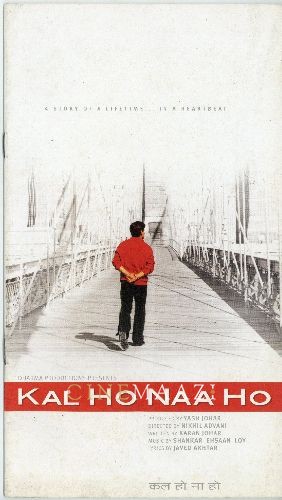
Kal Ho Naa Ho 2003
-
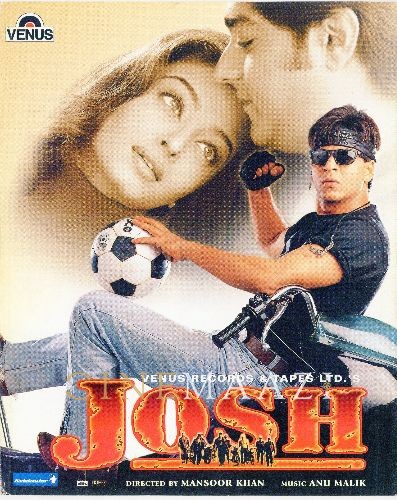
Josh 2000
-
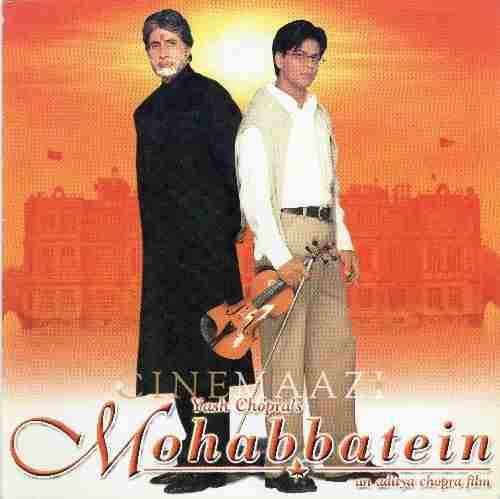
Mohabbatein 2000
-
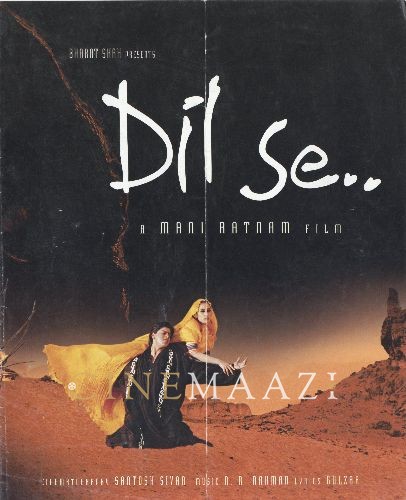
Dil Se 1998
-
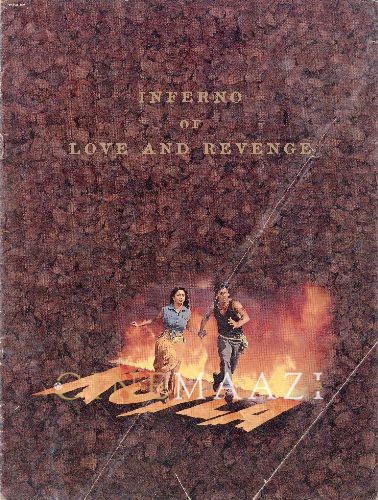
Koyla 1997
-
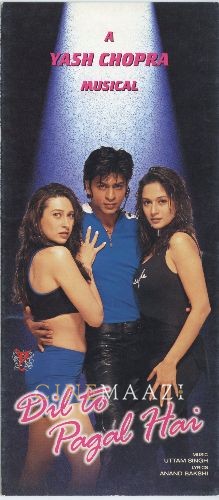
Dil To Pagal Hai 1997
-
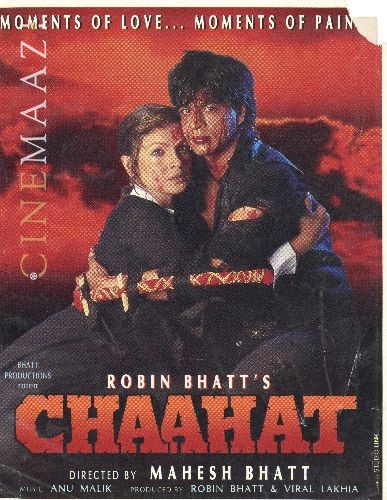
Chaahat 1996
-
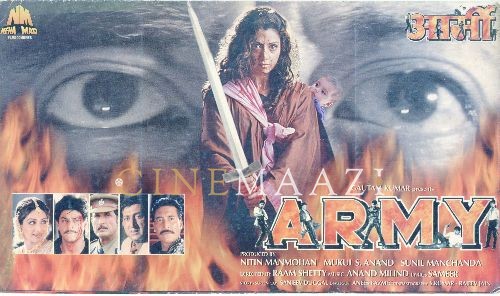
Army 1996




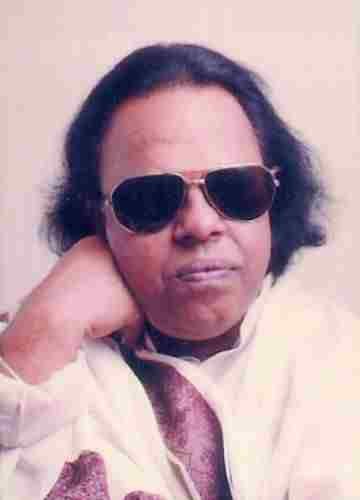
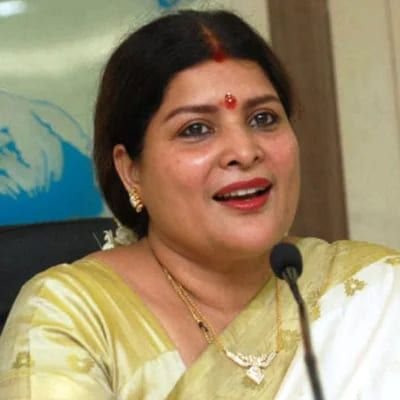
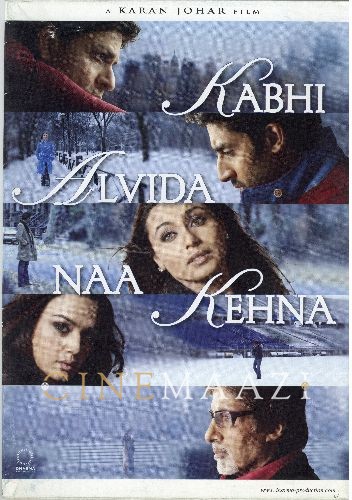
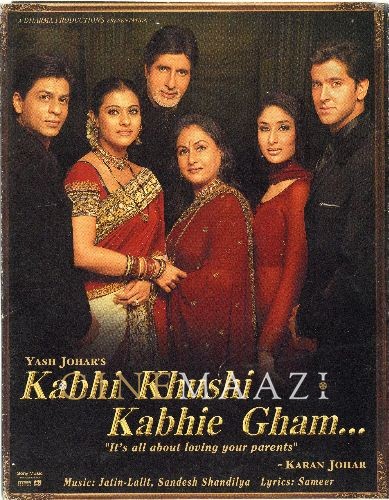
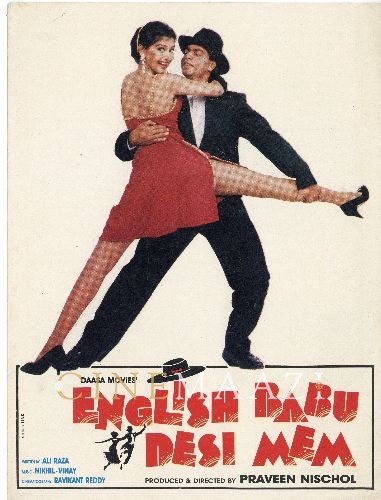
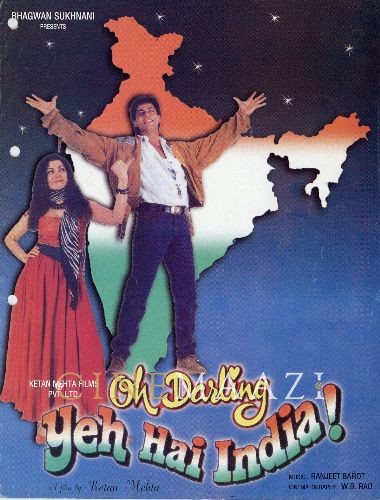
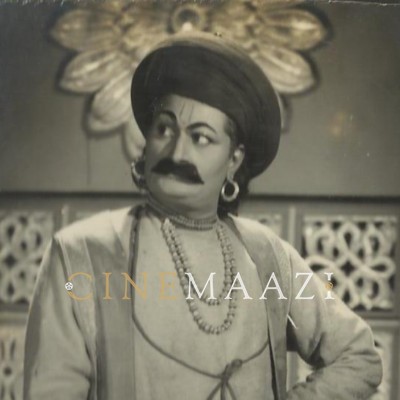
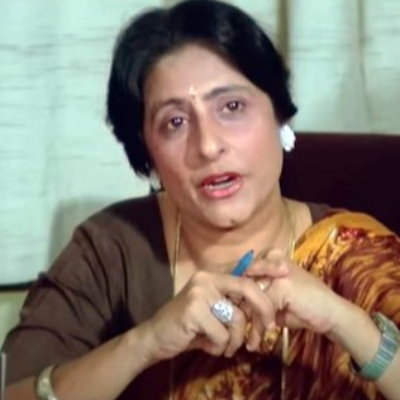
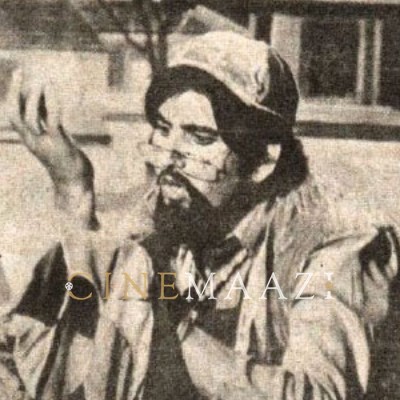

.jpg)



